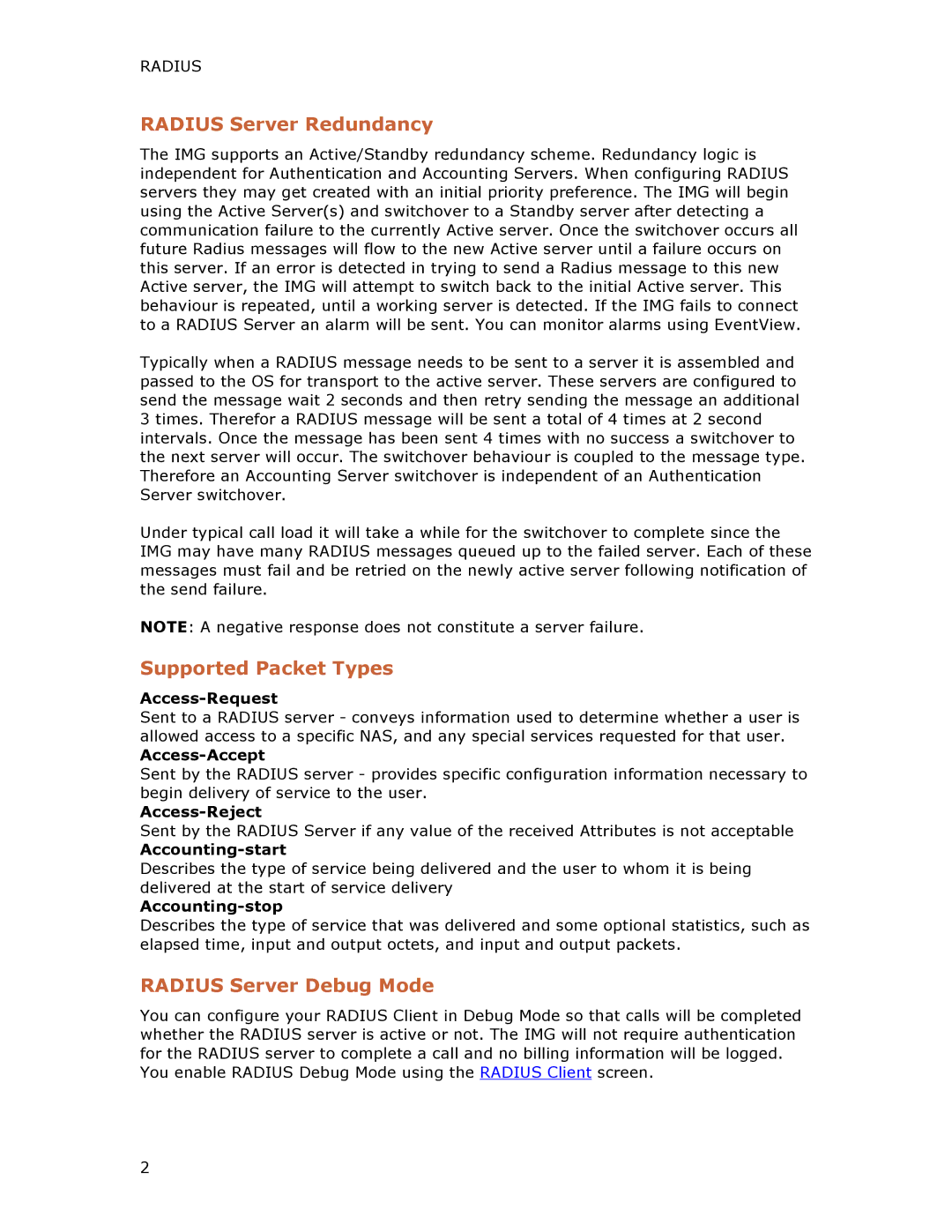RADIUS
RADIUS Server Redundancy
The IMG supports an Active/Standby redundancy scheme. Redundancy logic is independent for Authentication and Accounting Servers. When configuring RADIUS servers they may get created with an initial priority preference. The IMG will begin using the Active Server(s) and switchover to a Standby server after detecting a communication failure to the currently Active server. Once the switchover occurs all future Radius messages will flow to the new Active server until a failure occurs on this server. If an error is detected in trying to send a Radius message to this new Active server, the IMG will attempt to switch back to the initial Active server. This behaviour is repeated, until a working server is detected. If the IMG fails to connect to a RADIUS Server an alarm will be sent. You can monitor alarms using EventView. Typically when a RADIUS message needs to be sent to a server it is assembled and passed to the OS for transport to the active server. These servers are configured to send the message wait 2 seconds and then retry sending the message an additional 3 times. Therefor a RADIUS message will be sent a total of 4 times at 2 second intervals. Once the message has been sent 4 times with no success a switchover to the next server will occur. The switchover behaviour is coupled to the message type. Therefore an Accounting Server switchover is independent of an Authentication Server switchover.
Under typical call load it will take a while for the switchover to complete since the IMG may have many RADIUS messages queued up to the failed server. Each of these messages must fail and be retried on the newly active server following notification of the send failure.
NOTE: A negative response does not constitute a server failure.
Supported Packet Types
Access-Request
Sent to a RADIUS server - conveys information used to determine whether a user is allowed access to a specific NAS, and any special services requested for that user.
Access-Accept
Sent by the RADIUS server - provides specific configuration information necessary to begin delivery of service to the user.
Sent by the RADIUS Server if any value of the received Attributes is not acceptable
Accounting-start
Describes the type of service being delivered and the user to whom it is being delivered at the start of service delivery
Accounting-stop
Describes the type of service that was delivered and some optional statistics, such as elapsed time, input and output octets, and input and output packets.
RADIUS Server Debug Mode
You can configure your RADIUS Client in Debug Mode so that calls will be completed whether the RADIUS server is active or not. The IMG will not require authentication for the RADIUS server to complete a call and no billing information will be logged.
You enable RADIUS Debug Mode using the RADIUS Client screen.
2
